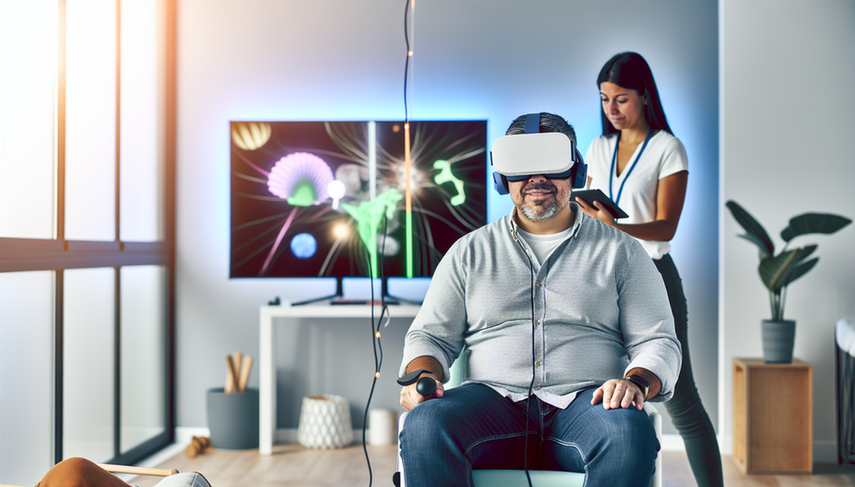Neurological Rehabilitation with Virtual Reality: Interactive Cognitive Exercises and Functional Diagnosis Techniques

Neurological rehabilitation has undergone a significant transformation with the incorporation of virtual reality (VR). This technology not only provides a safe and controlled environment for practicing motor skills but also allows for the integration of interactive cognitive exercises that can enhance functional recovery. In this context, functional diagnosis becomes an essential tool for personalizing interventions and maximizing therapeutic benefits.
Diving Deeper into Neurological Rehabilitation with Virtual Reality
VR has proven to be an effective tool in the rehabilitation of various neurological conditions. In the case of Parkinson's disease, for example, it has been used to improve gait and balance, showing promising results compared to traditional physiotherapy. A recent study highlighted that VR can lead to moderate improvements in step length and stride, suggesting its potential to optimize motor learning in a safe environment [1].
In the realm of stroke rehabilitation, VR combined with robotics has shown positive effects on cognitive and motor recovery. A randomized controlled clinical trial demonstrated that robotic rehabilitation with VR can enhance cognitive flexibility and switching skills, as well as selective attention and quality of life [2]. Additionally, VR has been utilized for home-based balance training, providing a viable alternative to in-clinic rehabilitation and improving postural stability in patients with Parkinson's [3].
The integration of VR in neurological rehabilitation is not limited to improving motor functions. Its impact on cognitive functions has also been explored, as seen in a study investigating the use of VR to enhance cognitive function and psychological well-being in patients with chronic stroke [2]. These findings underscore the importance of a holistic approach that combines functional diagnosis with personalized interventions to address both motor and cognitive deficits.
Conclusions
The incorporation of virtual reality in neurological rehabilitation represents a significant advancement in the treatment of neurological disorders. By offering an interactive and safe environment, VR enables the execution of cognitive exercises and motor tasks that can be tailored to the individual needs of each patient. Functional diagnosis plays a crucial role in personalizing these interventions, ensuring that patients receive the most appropriate treatment for their specific conditions. As technology continues to advance, we are likely to see an increase in the efficacy and accessibility of these innovative therapies.
Referencias
- [1] Virtual reality for rehabilitation in Parkinson's disease.
- [2] Can robotic gait rehabilitation plus Virtual Reality affect cognitive and behavioural outcomes in patients with chronic stroke?.
- [3] Virtual Reality Telerehabilitation for Postural Instability in Parkinson's Disease: A Multicenter, Single-Blind, Randomized, Controlled Trial.
Created 24/1/2025
